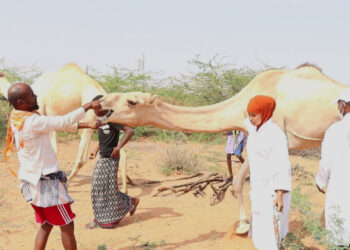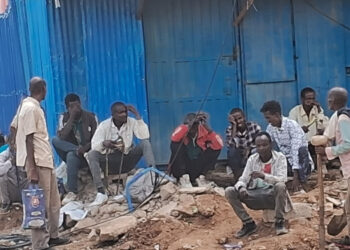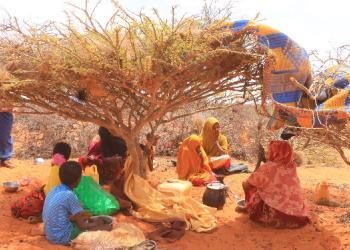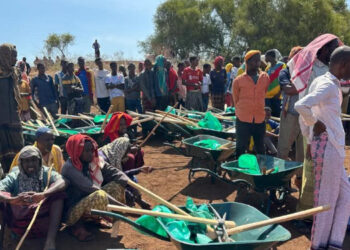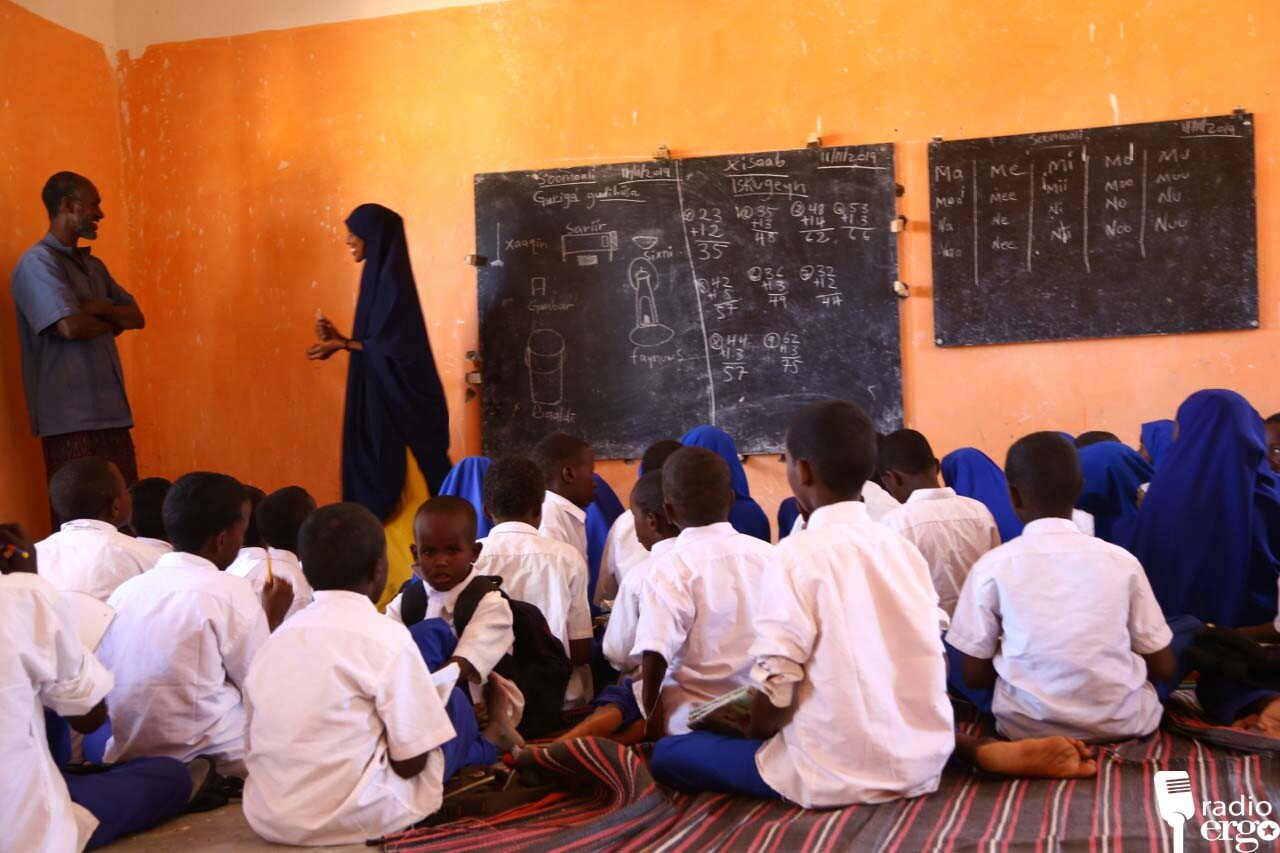(ERGO) – Somali schoolgirl Fartun Duran Isse, 17, and her two younger brothers were frightened to flee fighting between Al-Shabab and government forces in their home district of Adakibir – and devastated to have to abandon their education.
Fartun and her family migrated 65 kilometres away to Adado in Galmudug state, central Somalia, where they joined an IDP camp also called Adakibir.
“When I see other students going to school while we are displaced, I feel sad. I was in grade eight when the school closed. I got my roll number for the upcoming exams and although I would love to continue studying it’s not possible. We have been displaced and our parents can’t afford to continue paying for us,” Fartun told Radio Ergo.
The family’s herd of 200 goats has been reduced by the drought to 120 weak animals, which Fartun’s father is herding in the rural area of Dhagah-dheer.
“We are not able to afford food let alone school fees,” Fartun said resignedly. “I don’t think it will be possible to sit for the exam this year.”
According to the education authority in Galmudug, 90 schools have been closed by the combination of drought, conflict, and the ailing economy, disrupting education for 6,000 girls and boys.
The principal of Fartun’s old school in Adakibir, Dahir Daoud, said they had been forced to close as most students’ families could not continue paying their fees. They even reduced the fees to $3 per student, which was barely enough to run the school.
He said the $100 stipend from the Galmudug ministry of education for each teacher had become irregular.
“The school has so many classes that need teachers, and the teachers cannot go on teaching without pay for a month as they already took pay cuts,” the principal said, noting that the conflict had also had a major impact on the economic situation and parents’ ability to pay for education.
Deeqo Farah Shire, a single mother of eight children, was unable to continue paying $5 fees for her two daughters in fifth grade. The drought has diminished her herd to just 80 goats. The same happened to many other families forcing the closure of the local Qarsoni village school.
Some families sent their children to Galkayo to stay with relatives to continue studying, but Deeqo preferred to keep her girls at home hoping that the economy will pick up again soon.
“It’s not possible to send them away as they are girls and it’s hard for them to stay safe. We hope that the local school will reopen,” she explained.
Despite some rainfall in the area, however, Deeqo said their livestock are weak and sickly and recovery is not yet in sight.
Galmudug’s education minister, Mohamed Hashi Dhore, said the drought and conflict have taken a toll on education in the region. Twenty schools managed to reopen with some external support, but 70 others remain closed. The ministry has not been allocated a budget to reopen all the schools.
“The only thing we can now do is to have meetings with the aid organisations and donors and ask if they can help us reopen the schools. We are trying to assess the situation faced by the students in Galmudug,” he said.
“As the drought gets worse, you could expect more schools to shut their doors, since most of the people in these areas depend on farms and livestock.”


